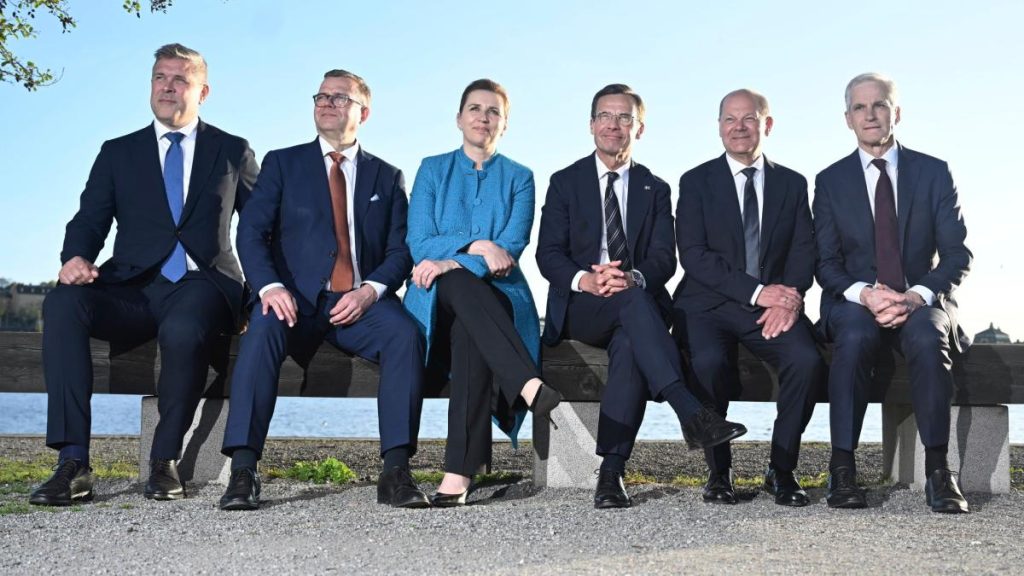German Chancellor in Sweden – This meeting shows that the times of Nordic neutrality are over. During the meeting of the Nordic Council in Stockholm, Chancellor Olaf Scholz and the heads of government of the Nordic countries sent a clear signal of further support for Ukraine. While there was consensus on the “common values foundation,” one partner also had words of caution. The nordic countries are coming together amid the security situation in Europe in light of the Russian war against Ukraine.
Chancellor Olaf Scholz traveled to Stockholm on Monday to attend the meeting of the Nordic heads of government, invited by Swedish Prime Minister Ulf Kristersson. Established in 1952, the Nordic Council brings together Norway, Denmark, Sweden, Iceland, and Finland since 1955, once a year. In addition to expanding partnerships in digital and green transformation, the central theme was the security situation in Europe in the face of the Russian war against Ukraine. The Nordic countries, traditionally known for military restraint, are now aligning with Scholz’s proclaimed time shift. Sweden and Finland recently joined NATO, signaling the end of Nordic neutrality.
At the meeting in Stockholm, Kristersson emphasized that all Nordic countries are now NATO members, reaffirming their support for Ukraine as long as it is necessary. This commitment was echoed by Finnish Prime Minister Petteri Orpo, stating that the security of Ukraine is also crucial for all. Chancellor Scholz has repeatedly emphasized NATO’s commitment to defend every inch of alliance territory, expressing similar sentiments during recent visits to Lithuania, Latvia, and meetings with Finnish Prime Minister Alexander Stubb at the German Chancellery.
Despite some criticism within his own coalition, Scholz did not face opposition to his stance on the delivery of Taurus cruise missiles from Nordic countries. Danish Prime Minister Mette Frederiksen called on other European states, like Germany, to provide more Patriot air defense systems and ammunition to Ukraine. She emphasized the urgency of the situation in Ukraine, stating that additional Patriot systems were needed and emphasizing the installation of air defense systems in Ukraine rather than NATO countries.
Scholz highlighted the shared values of the Nordic partners, including commitments to human rights, democracy, and the rule of law, during the meeting in Stockholm. While solidarity was evident externally, priorities are also shifting internally towards enhancing defense capabilities in some Nordic countries. Discussions in Germany regarding reinstating conscription contrast with Sweden and Norway’s policies of including women in compulsory military service. The evolving defense landscape in Northern Europe signals potential debates in Germany on this issue.
On Tuesday, Scholz will hold bilateral discussions with Swedish Prime Minister Kristersson in Stockholm, where they will sign an updated innovation partnership focusing on E-Health, mobility, and scientific platforms for research and experimentation. Government sources indicate plans to expand the partnership to defense, security, and space sectors. The meeting signifies a strengthening of ties between Sweden and Germany, reflecting a broader shift towards increased collaboration in various fields.


